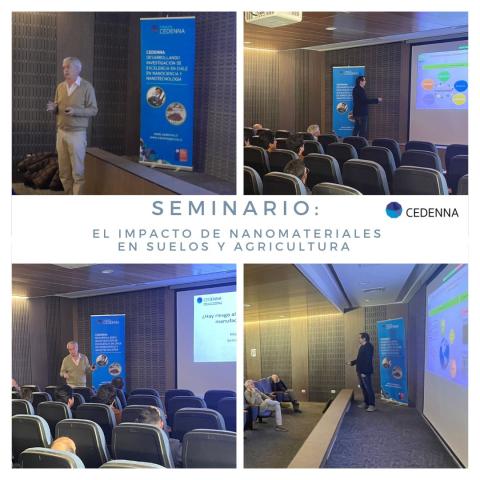
The second day of the CEDENNA Seminar Cycle addressed how nanotechnology can contribute to the production of safe food, reducing the amount of fertilizers and pesticides used in the fields. And at the same time, from the perspective of nanosecurity, the importance of considering the impact that nanomaterials can have on soils and plants.
The conference was held in the auditorium of the REM Research Centers Building, with the participation of researchers and students from the center who actively participated with questions and opinions at the end of the presentations by Drs. Mauricio Escudey (CEDENNA) and Rafael Freire (Agricultural Research Institute, INIA).
In his talk, Dr. Freire explained how nanotechnology can help reduce the amount of inputs used in agriculture, such as fertilizers and pesticides, which, although they have the objective of increasing yield, can also affect food safety and environment.
Then, in order to exchange ideas with the attendees, Dr. Escudey began his presentation with the question: How are soil and water affected by applying manufactured nanomaterials? The researcher pointed out that “there are direct and indirect impacts. The first are products developed to be applied directly to the soil or to plants: such as nanofertilizers, nanopesticides, and nanoremediation, and on the other hand, indirect impacts come from products that are used for various purposes that end up in the soil or water. such as nanoplastics.
“The most significant thing is the lack of basic knowledge that allows us to cover a wide range of potential problems. The long-term behavior of nanomaterials in the environment and in soils is unknown; nanomaterials could contribute to the distribution of contaminants or to their risky accumulation in the trophic chain”, he specified.
- Log in to post comments







